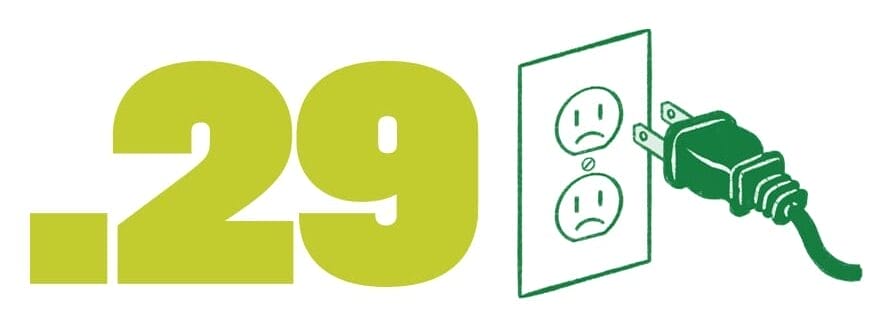
(Illustrations by Josie Norton)
THOUGHT
“I don’t think anybody is born with the leadership gene or the teamwork gene or the culture gene. It’s up to us to find ways to help people.”
William and Jacalyn Egan Professor Emeritus of Management Michael Useem on whether leadership can be taught. Useem pointed to examples of the McNulty Leadership Program’s immersions into the New York Fire Department and Quantico on Dean Erika James’s “What I’ve Learned” series with impactful faculty members.
DATA INTERPRETED
 Self-checkout portion of grocery-store transactions in 2022
Self-checkout portion of grocery-store transactions in 2022
Despite consumer frustrations, Wharton operations, information, and decisions associate professor and Charles W. Evans Distinguished Faculty Scholar Santiago Gallino predicts self-checkouts are here to stay. “For retailers, it’s a combination of cutting labor and adding flexibility,” he says. “They are basically transferring the labor to the customer.” The automated registers pose risks of inventory loss, with shoppers manipulating sensitive produce scales. Fifteen percent of self-checkout users even admit to stealing. “I think some retailers are going to be smarter about when and how they use it,” says Gallino.
THOUGHT
Are We Moving Toward a Four-Day Workweek?
Most people assume that the four-day-workweek idea is a holdover from the pandemic, but management professor/professor of business economics and public policy Iwan Barankay explained that it’s been around much longer. On a recent episode of Knowledge at Wharton’s Ripple Effect podcast, he detailed what modern executives can learn from early trials in the 1990s. When Volkswagen assayed the truncated work-week model in post-reunification-era Germany, the company quickly found that although employees had 20 percent less time to complete their work, the pay didn’t shrink by 20 percent. Because employees who were wired to compete with their peers were now obligated by the union to clock out with fewer hours, Barankay explained, many took their work home with them: “This was actually quite more stressful, because the expectation of performance remained the same.”
 To alleviate this added pressure on employees, Volkswagen eventually returned to the full week. “When we squeeze them for time like this, I fear this might be at a loss for the employees but also for the companies,” said Barankay. His worry is that paring down to four days would begin a slippery slope into outsourcing and subcontracting — popular choices in today’s gig economy. Workers who come in for only part of the week aren’t as integrated into the work culture and are harder to manage, whereas full-time employees get a chance to shape the workplace in an effective way: “They know what the challenges are at the front lines,” Barankay noted. “This feedback loop leads to better productivity. With a subcontractor, you don’t have that at all.”
To alleviate this added pressure on employees, Volkswagen eventually returned to the full week. “When we squeeze them for time like this, I fear this might be at a loss for the employees but also for the companies,” said Barankay. His worry is that paring down to four days would begin a slippery slope into outsourcing and subcontracting — popular choices in today’s gig economy. Workers who come in for only part of the week aren’t as integrated into the work culture and are harder to manage, whereas full-time employees get a chance to shape the workplace in an effective way: “They know what the challenges are at the front lines,” Barankay noted. “This feedback loop leads to better productivity. With a subcontractor, you don’t have that at all.”
When companies shorten the workweek, Barankay said, meetings are the first item to get cut, but the workload is unaffected. “That leads me to say, ‘Well, then perhaps you need to make the meetings better.’” The experiment can also be expensive. “In the past, you might say, ‘Let’s just fire people, and then when we want to hire again, we can bring them back,’” Barankay said. “But that transition is very, very costly.” He pointed out that those pushing for the four-day workweek are often those whose jobs include non-routine tasks that wouldn’t translate well to that model anyway. “After a while, they realize that this is just too complicated to coordinate. And people perhaps want the simplicity of a nine-to-five job that they can depend on.”
DATA INTERPRETED
Percentage-point increase on electric vehicle loan interest versus non-EV loans
A study co-authored by Wharton assistant finance professor Huan Tang showed the primary driver of the “EV financing gap” is the technological risk associated with EVs. Lenders charge higher interest rates on EV loans because “the rapid and uncertain evolution of EV technologies accelerates technology obsolescence, diminishing the resale value of EVs,” the paper pointed out.
THOUGHT
“Instead of getting something from 100 miles away, you’re getting it from halfway around the world. And that’s when you realize that it’s low-cost, but it’s also very vulnerable.”
Marshall Fisher, UPS Professor, professor of operations, information, and decisions, and co-director of the Fishman-Davidson Center for Service and Operations Management, has researched supply chain management for more than 35 years. Fisher commented on the White House initiative to reduce inflation by increasing supply in an interview with Wharton Business Daily on SiriusXM.
DATA INTERPRETED

Amount of pre-retirement income that social security benefits replace for the average retiree
Per her research, Wharton business economics and public policy professor Olivia S. Mitchell recommends using retirement-account assets to purchase fixed deferred-income annuities that can serve as a “bridge” for workers who leave their jobs before age 70.
Published as “Data” in the Spring/Summer 2024 issue of Wharton Magazine.




















 Self-checkout portion of grocery-store transactions in 2022
Self-checkout portion of grocery-store transactions in 2022




